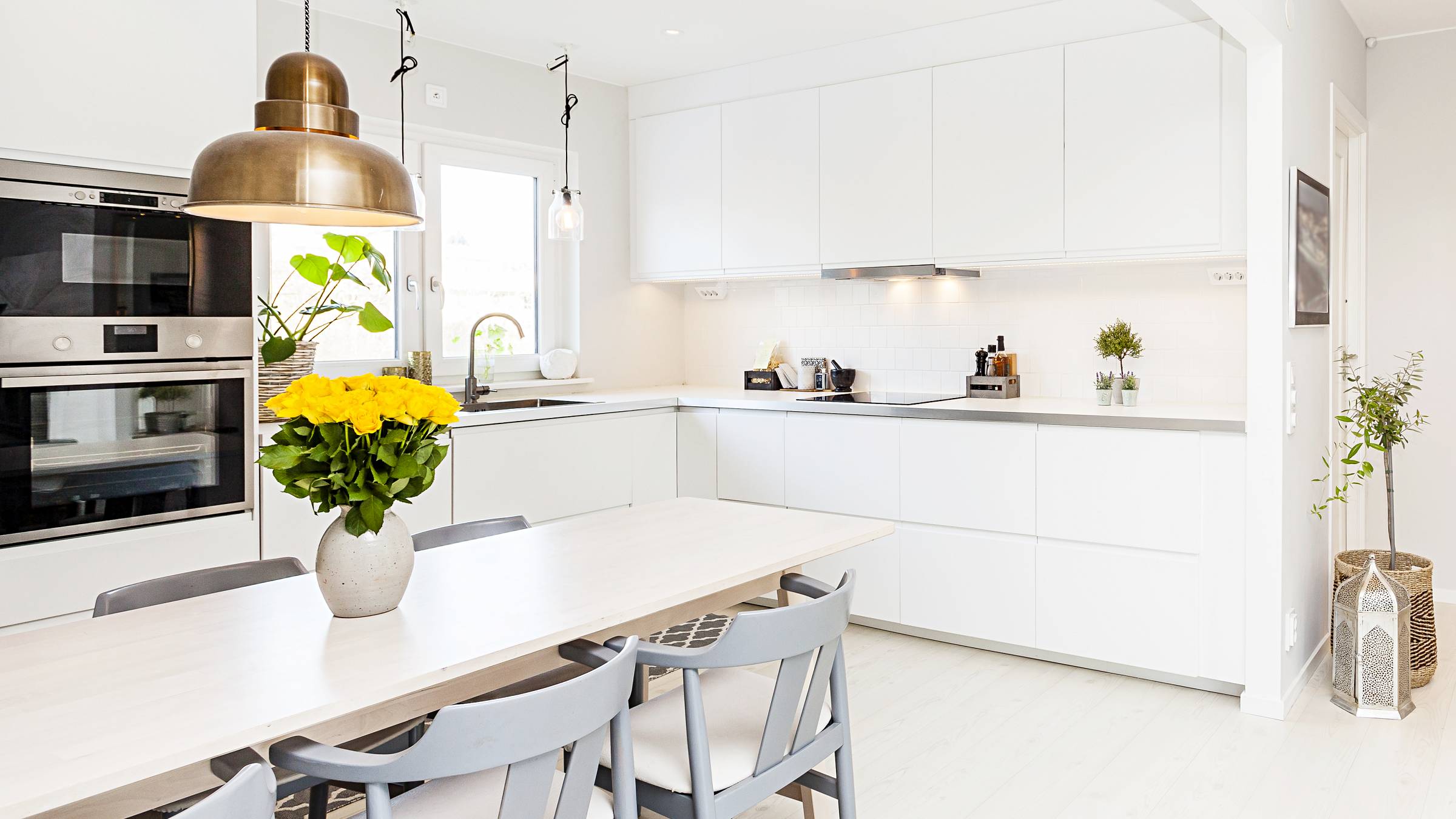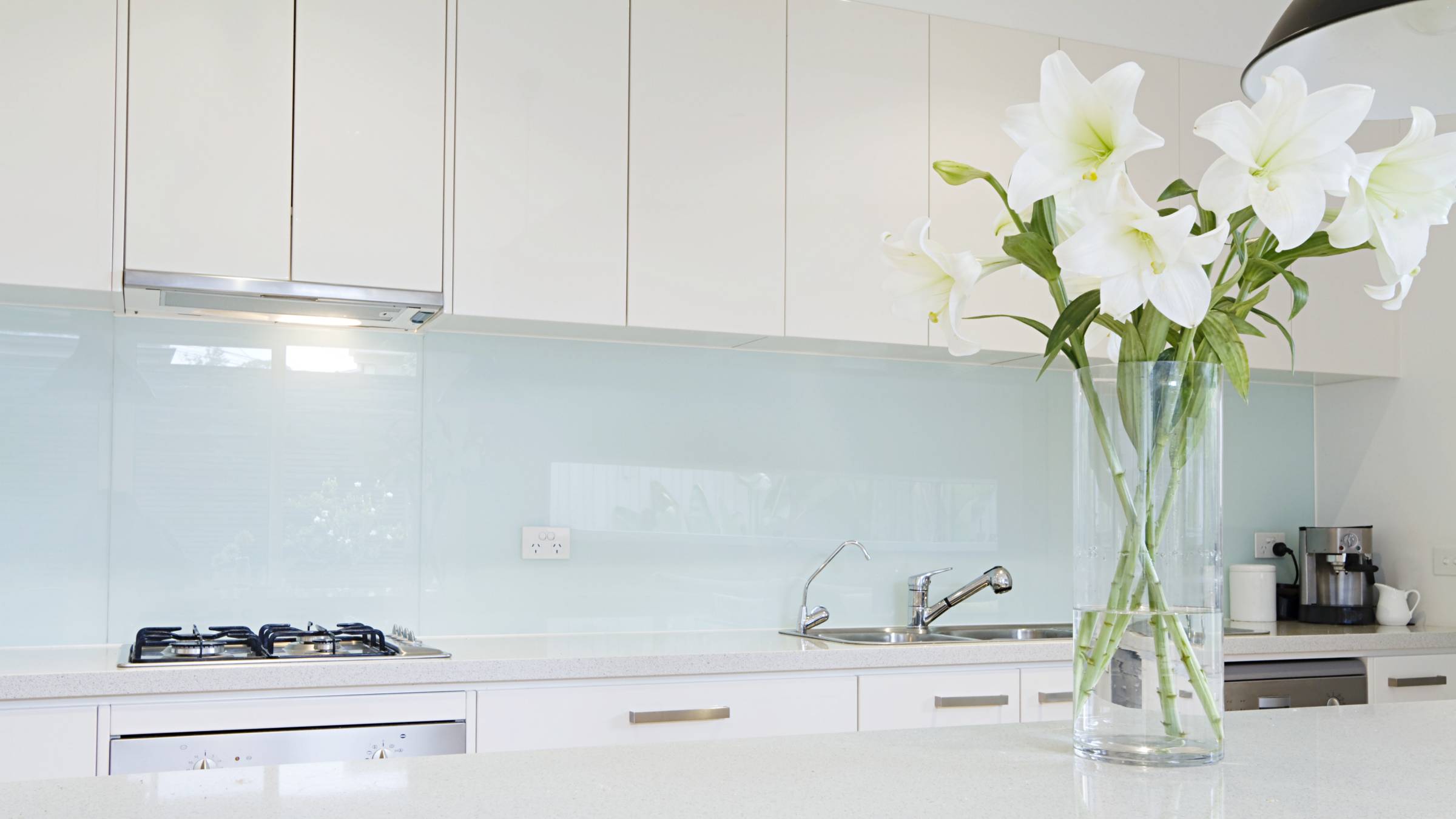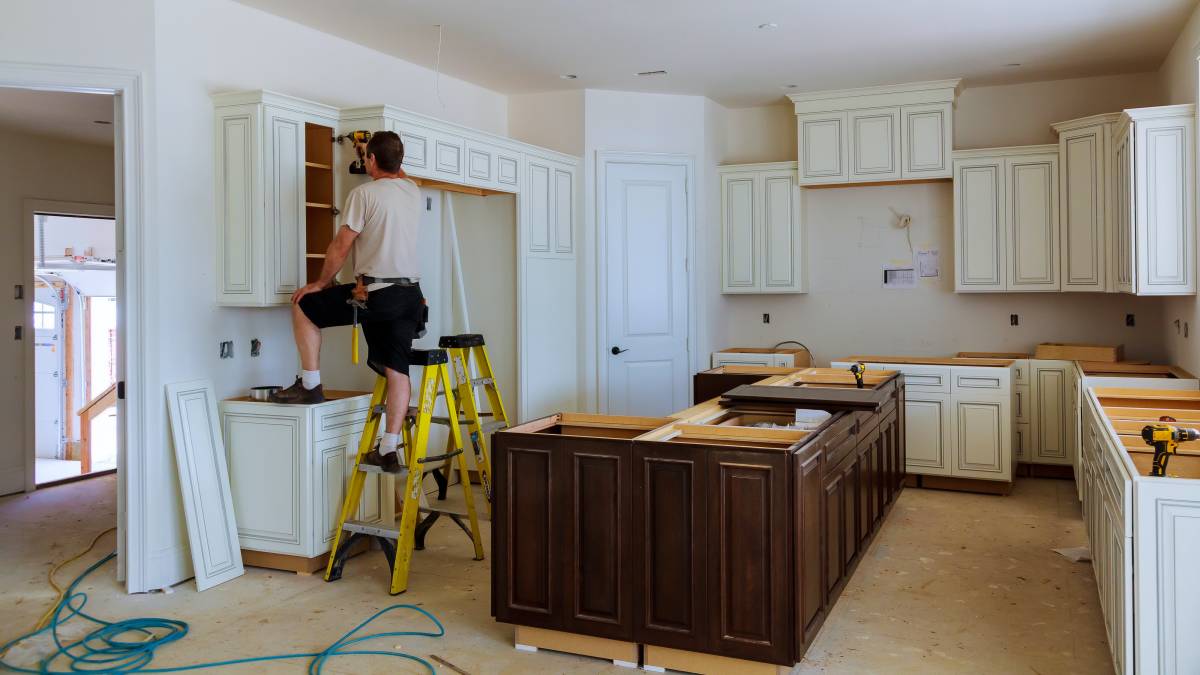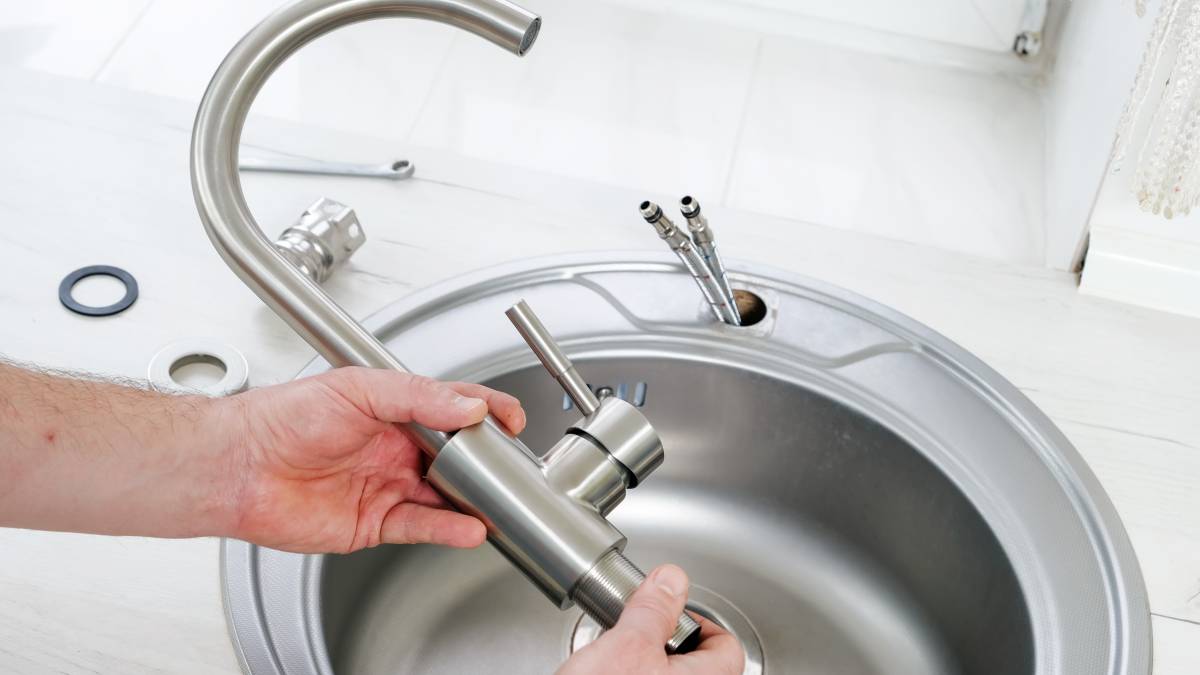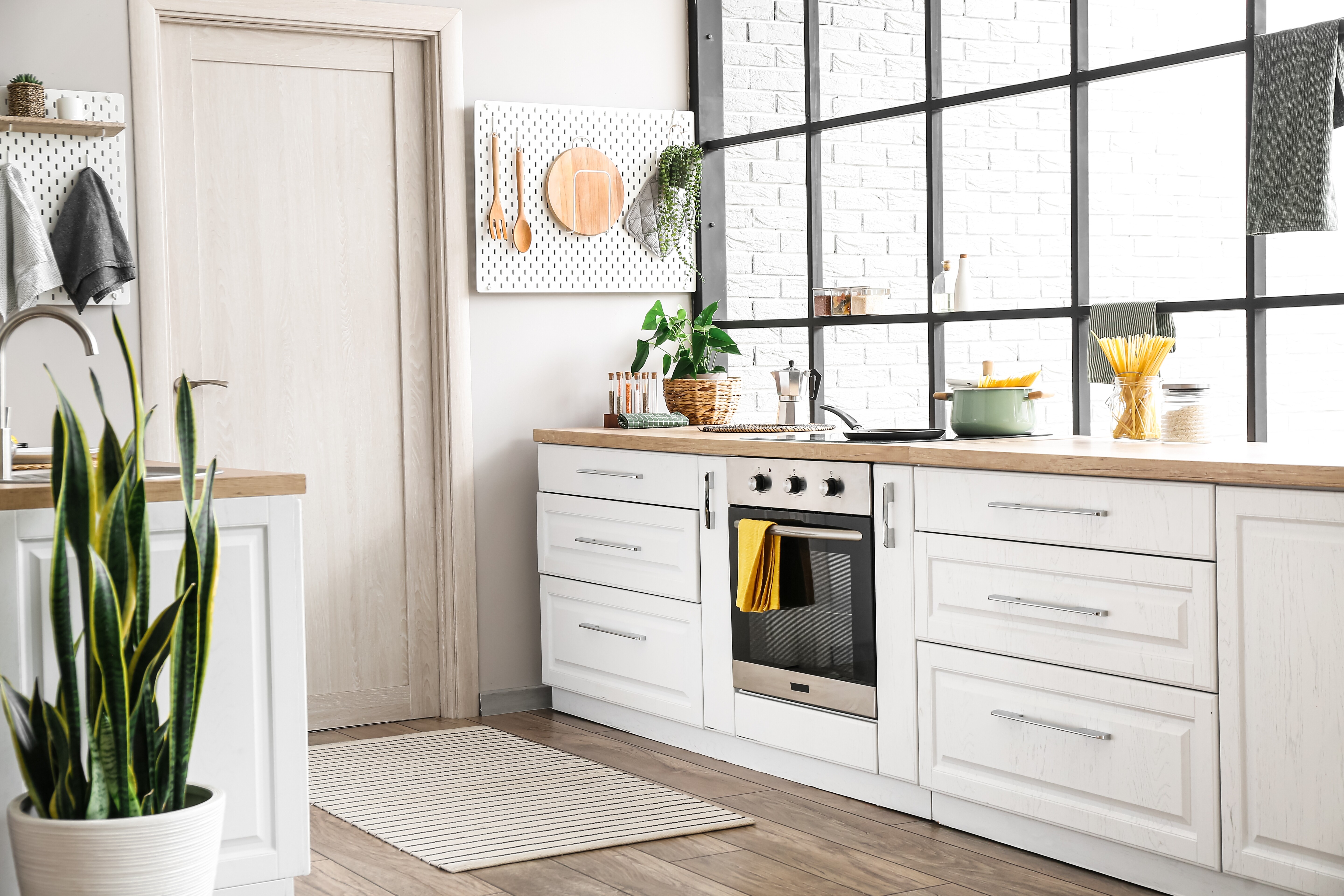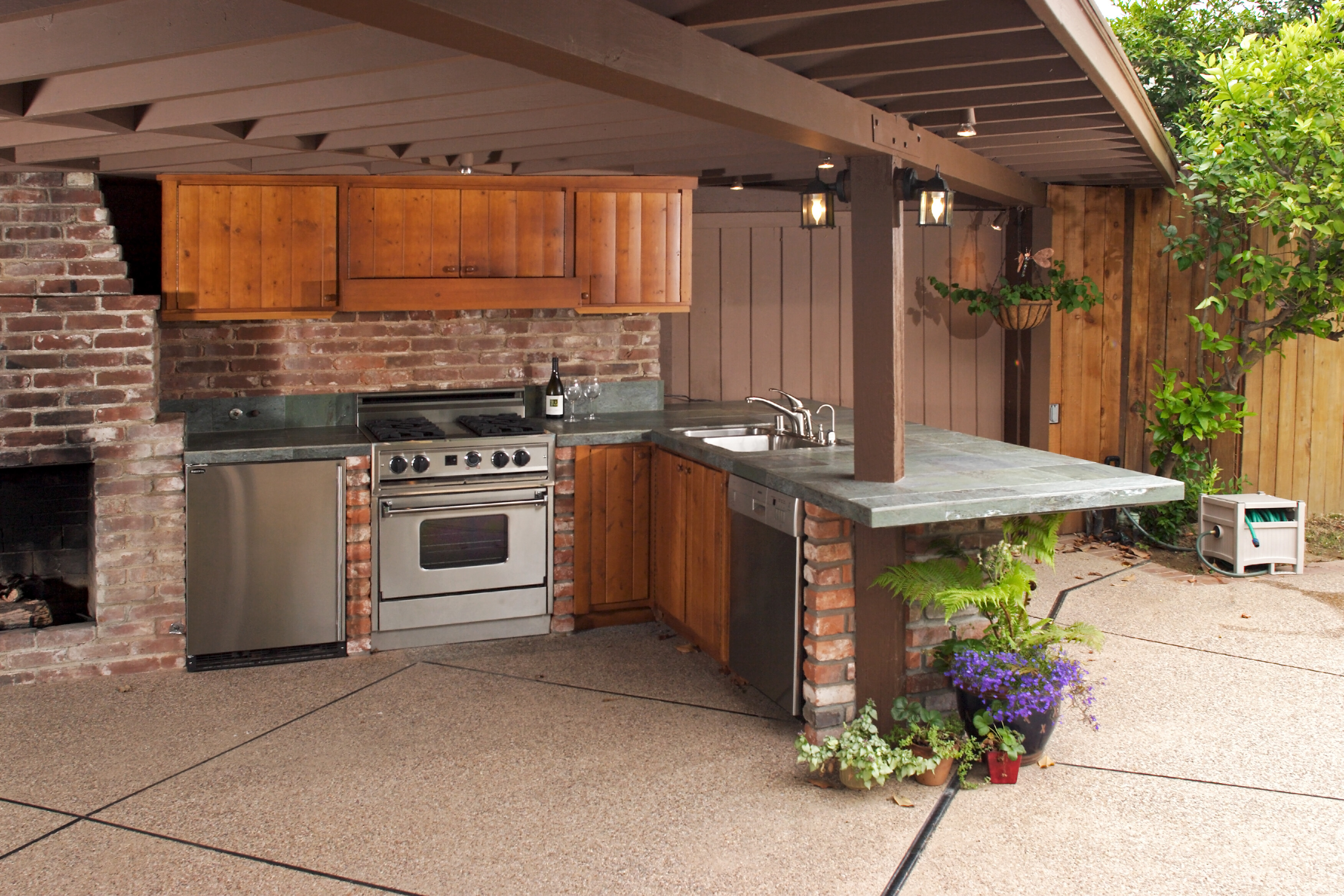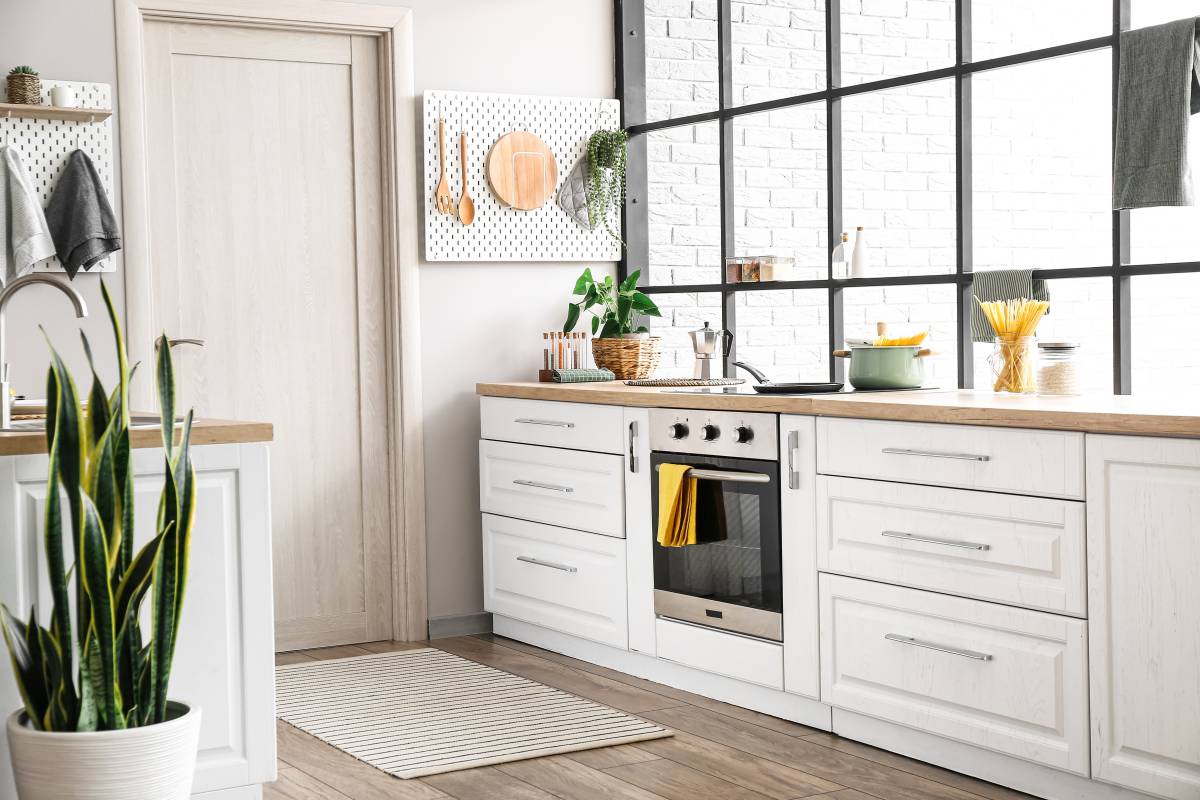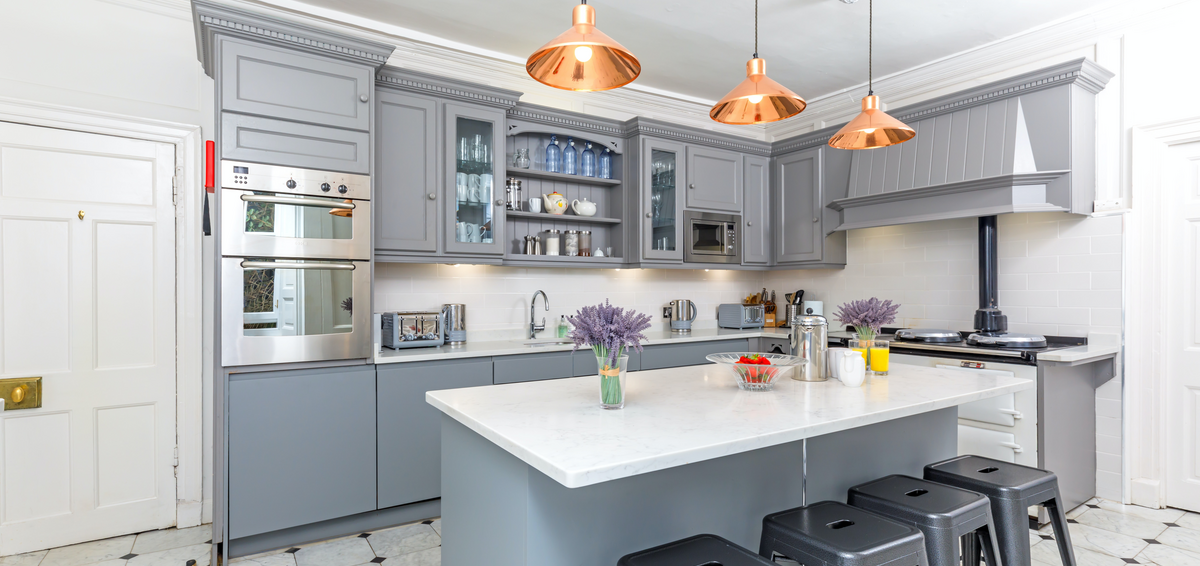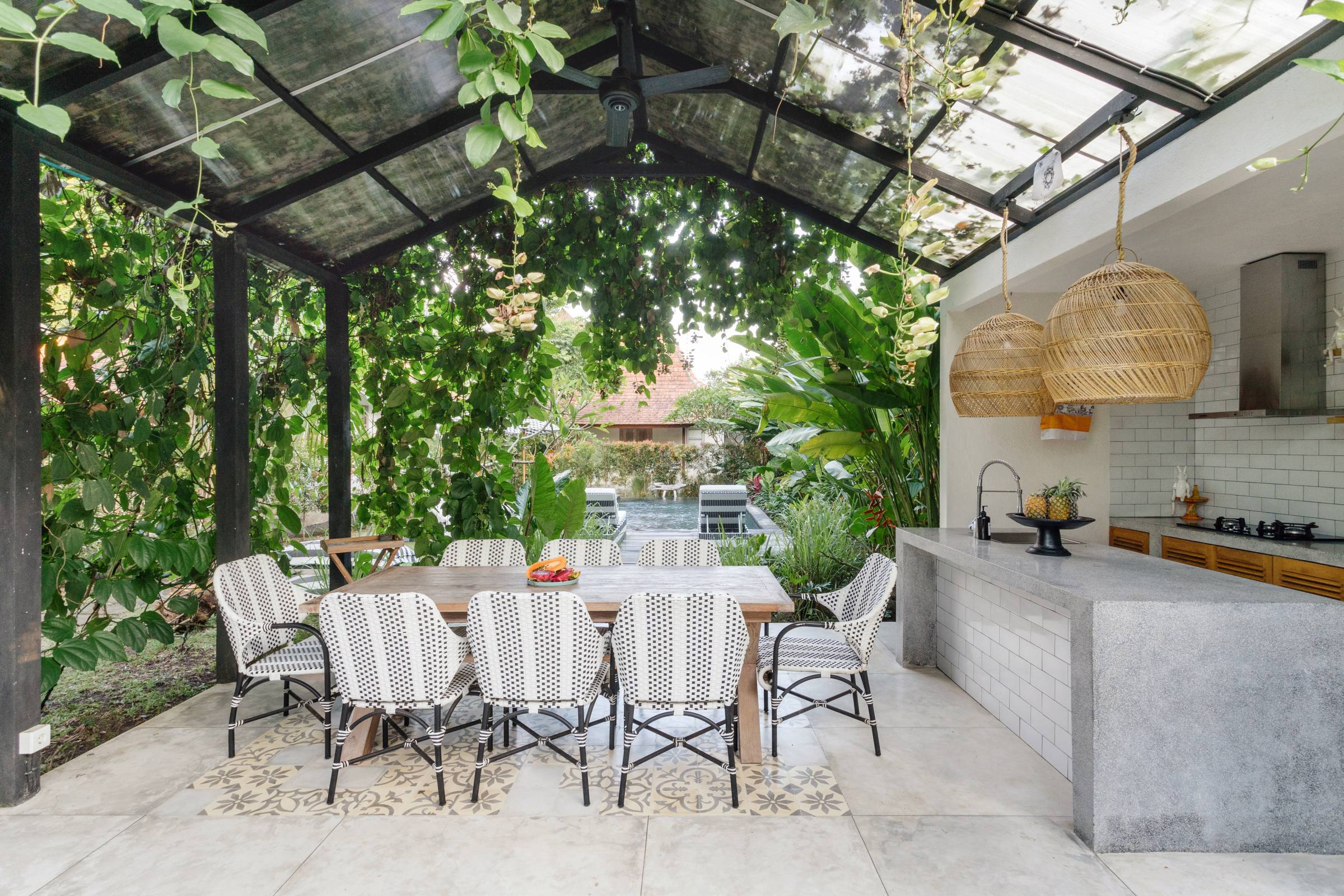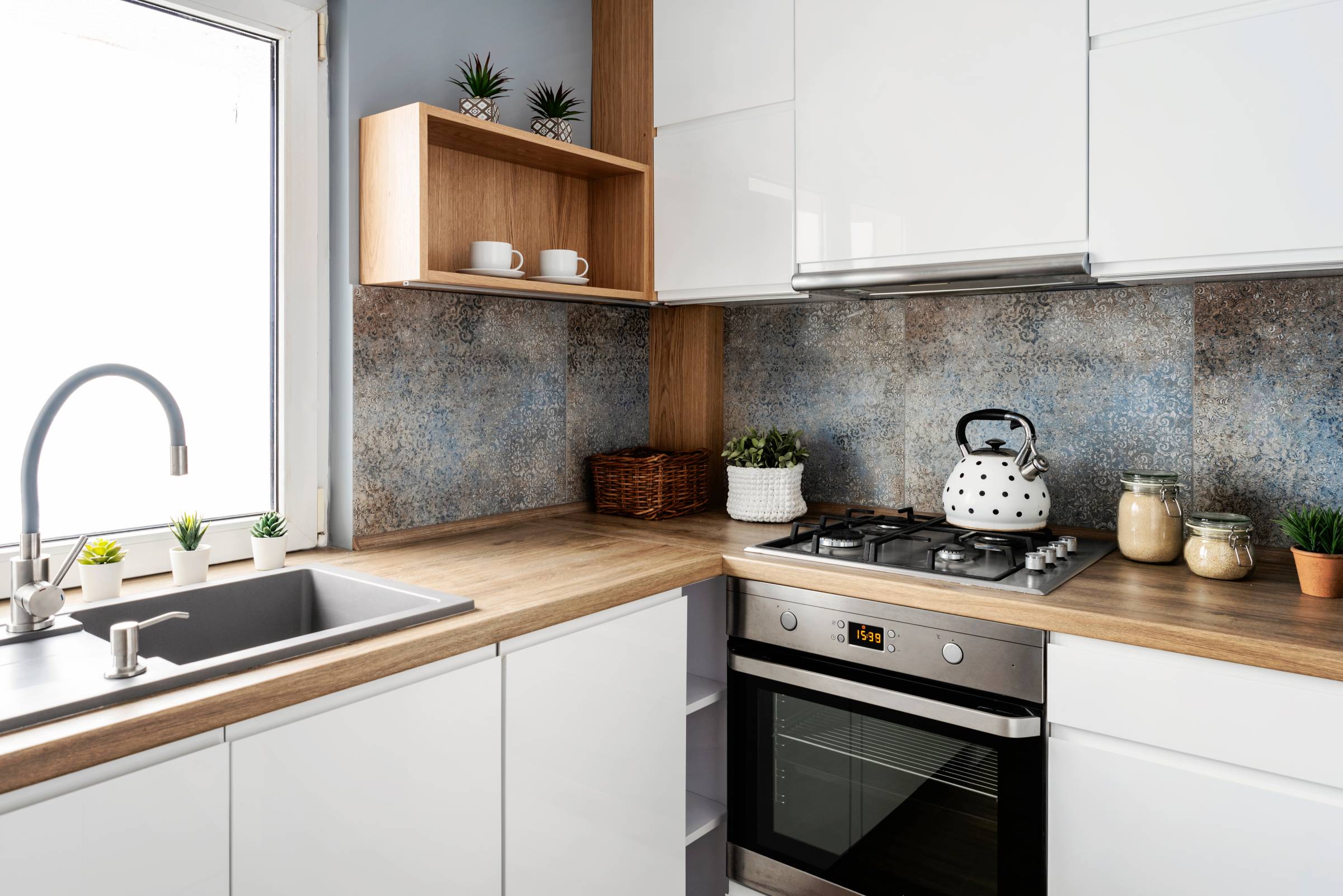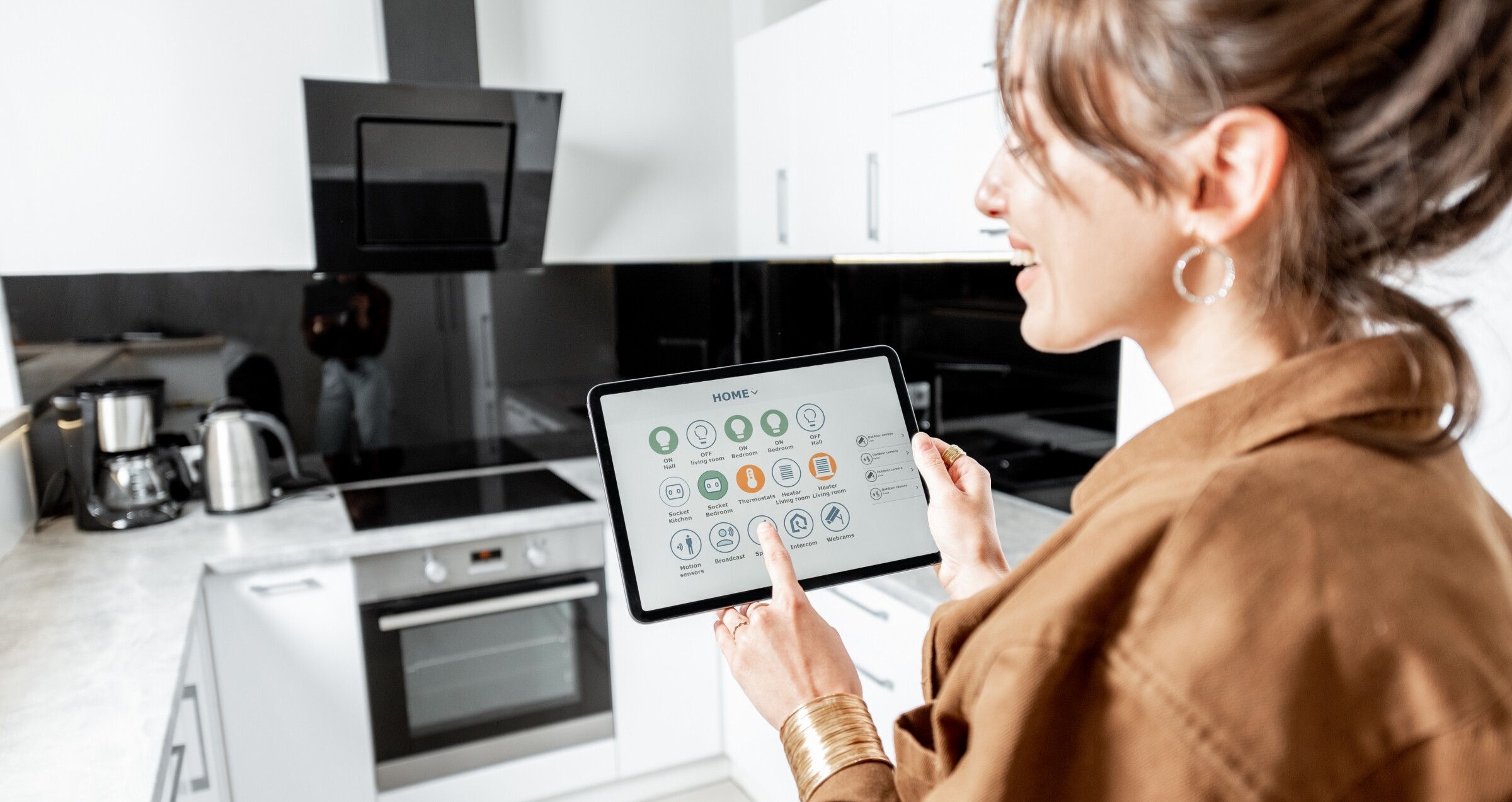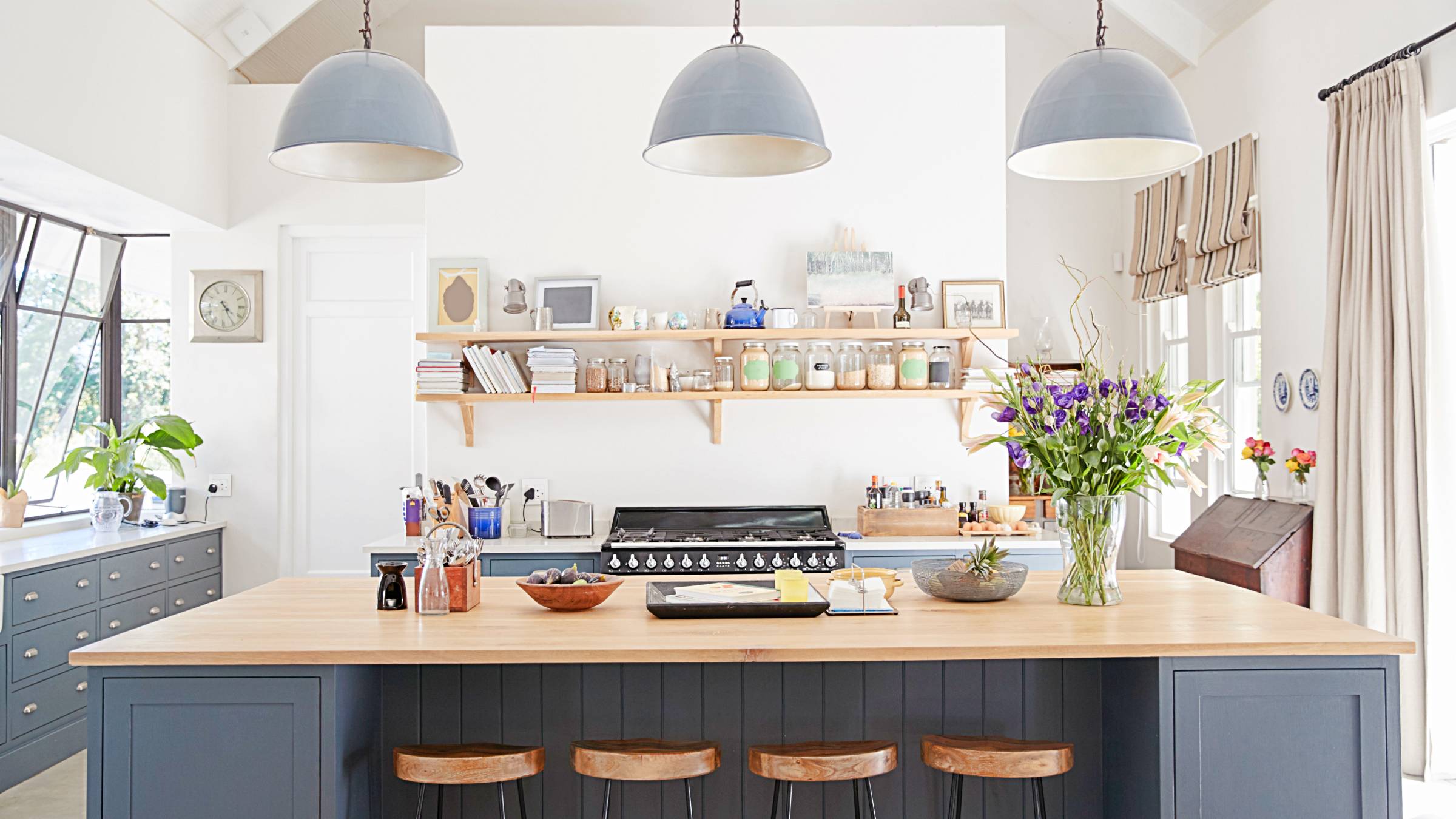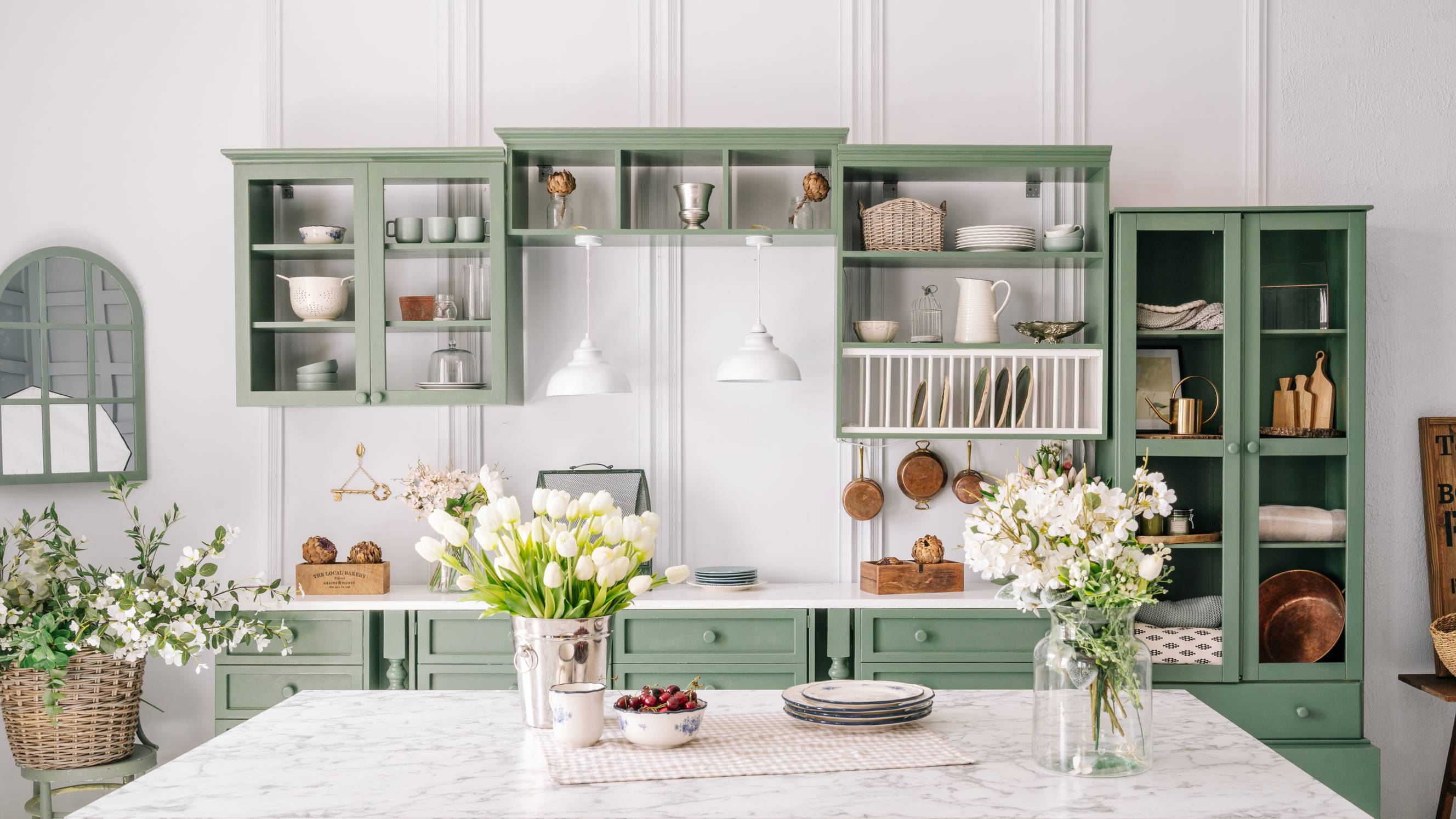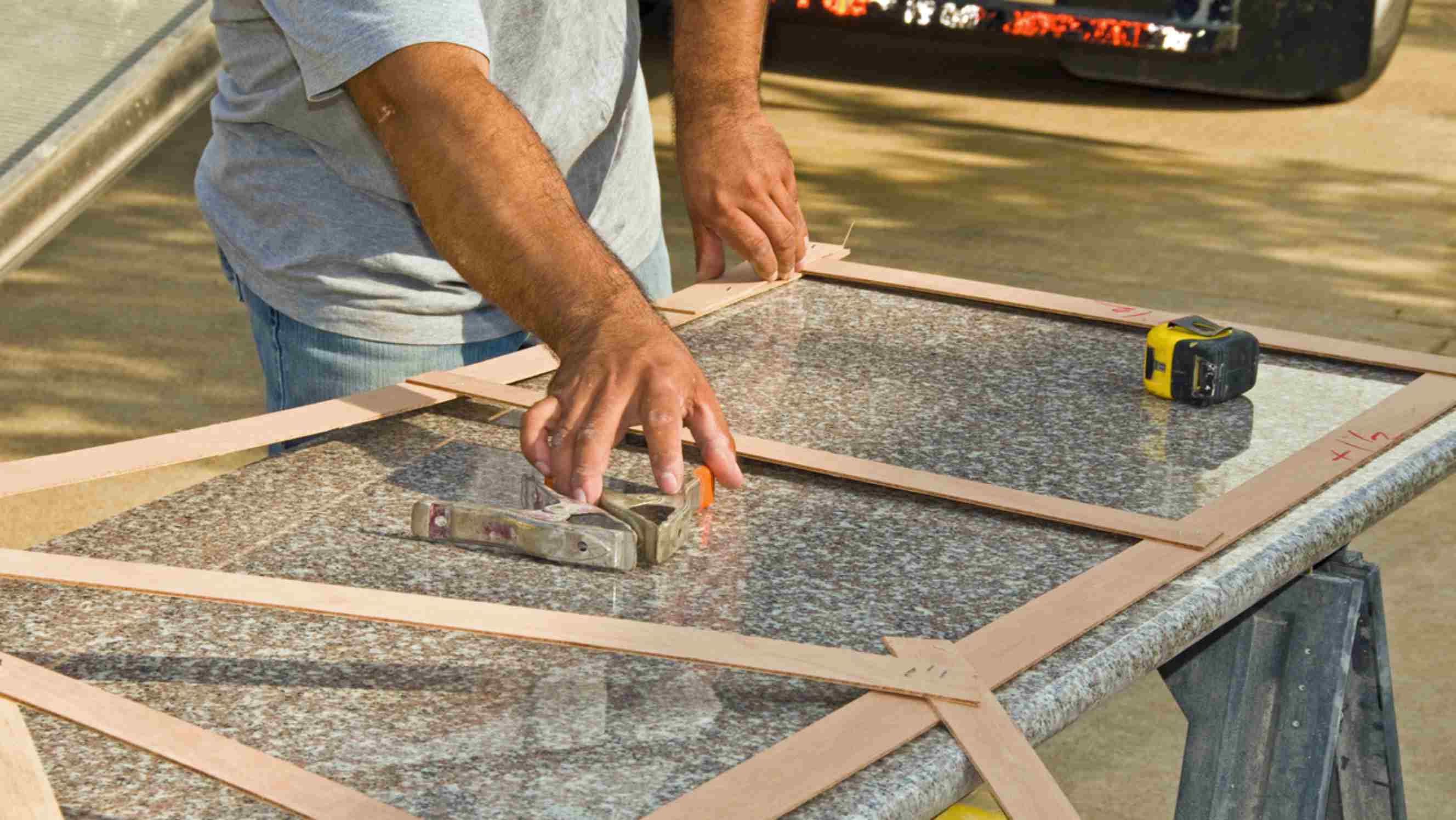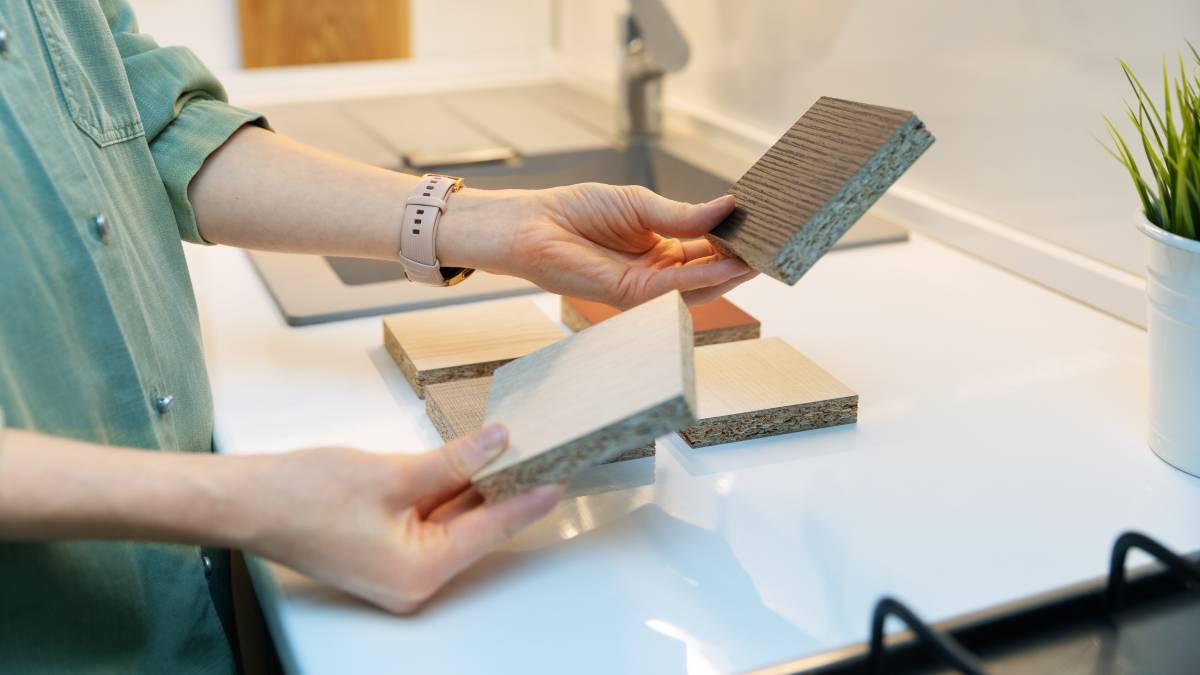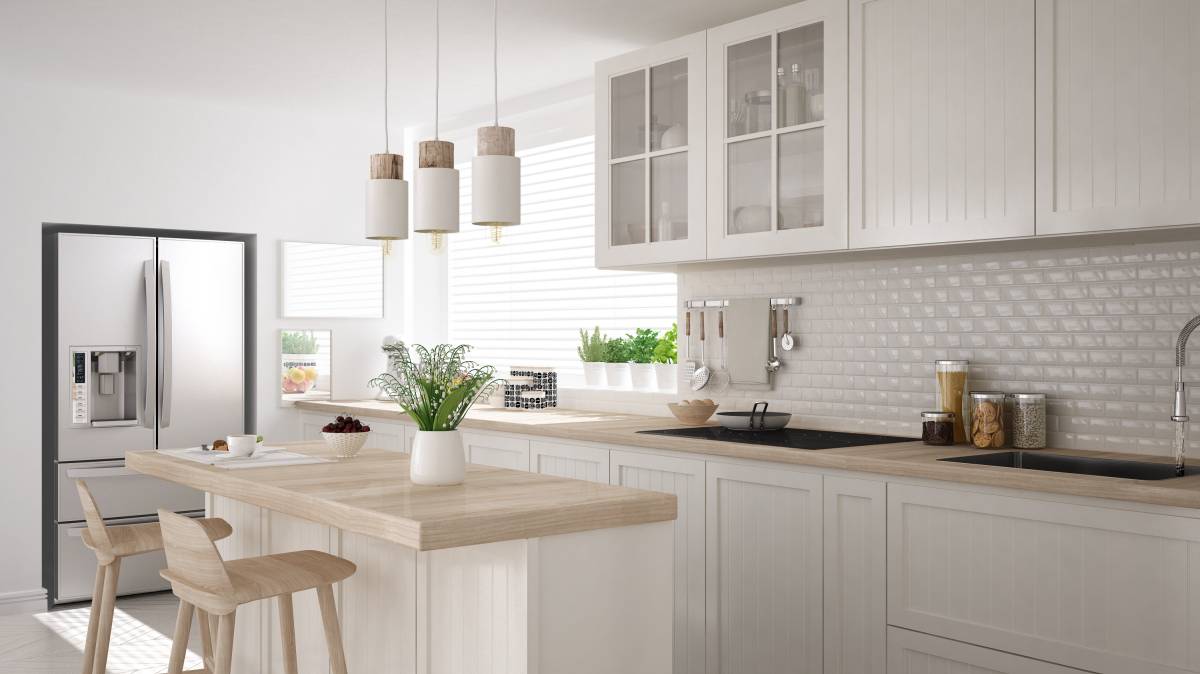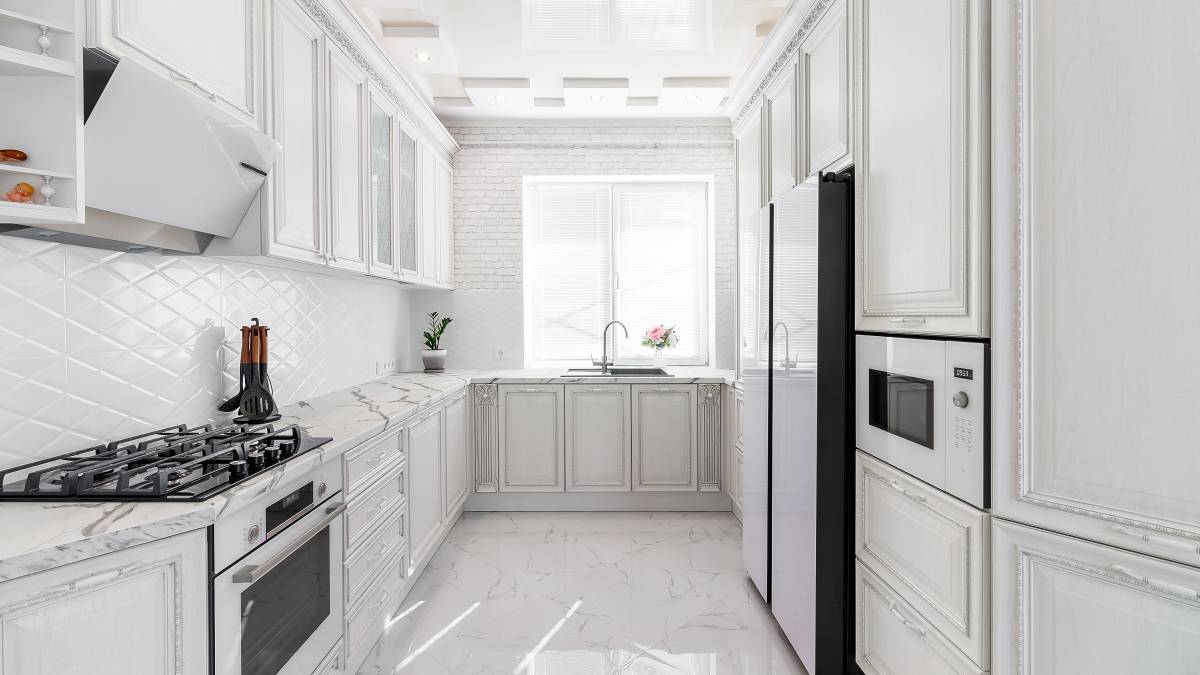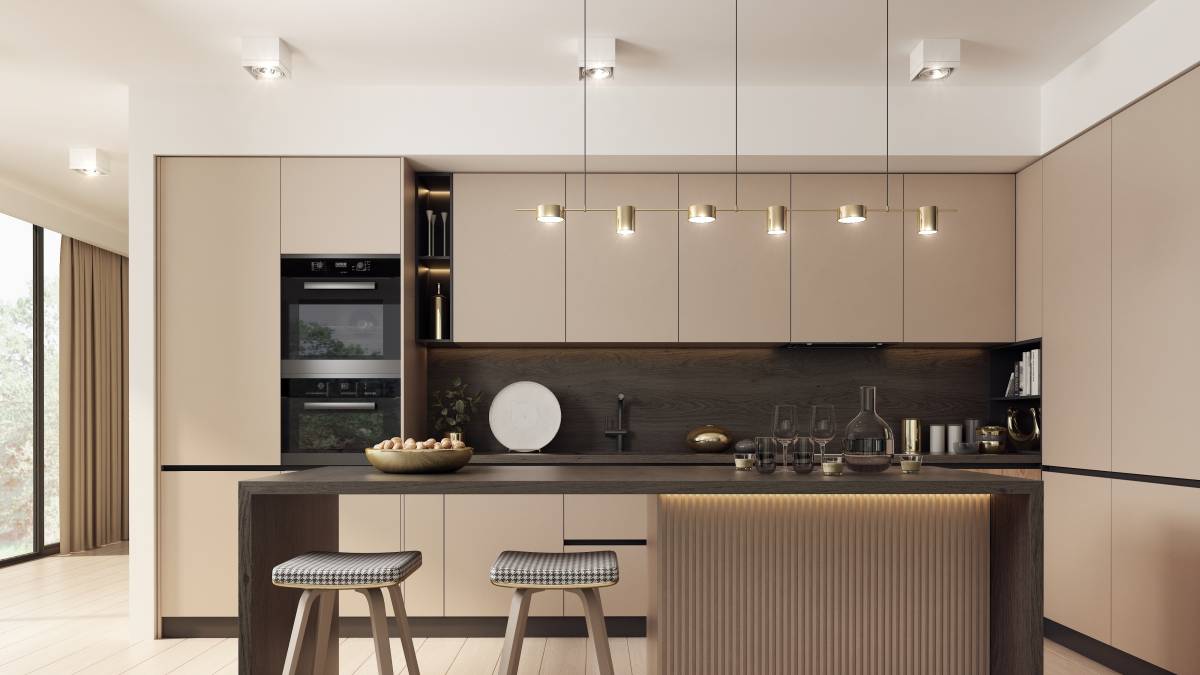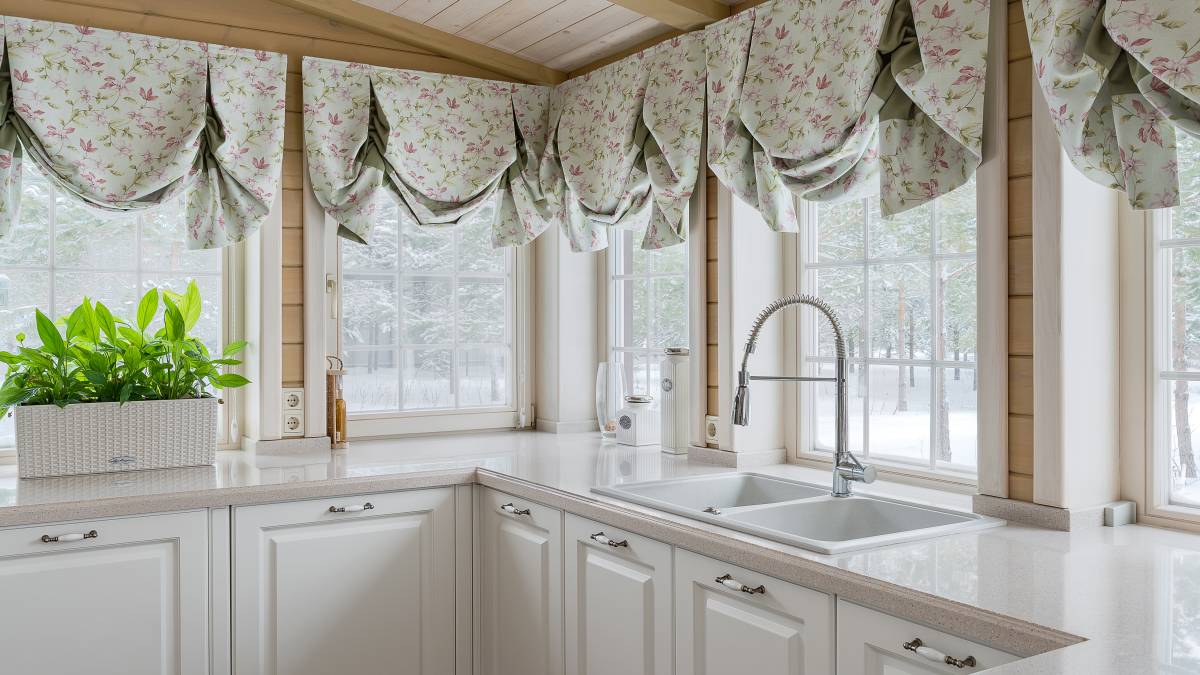- Home/
- Costs/
- Kitchen Renovation/
- Kitchen Worktop Replacement Cost Guide 2023
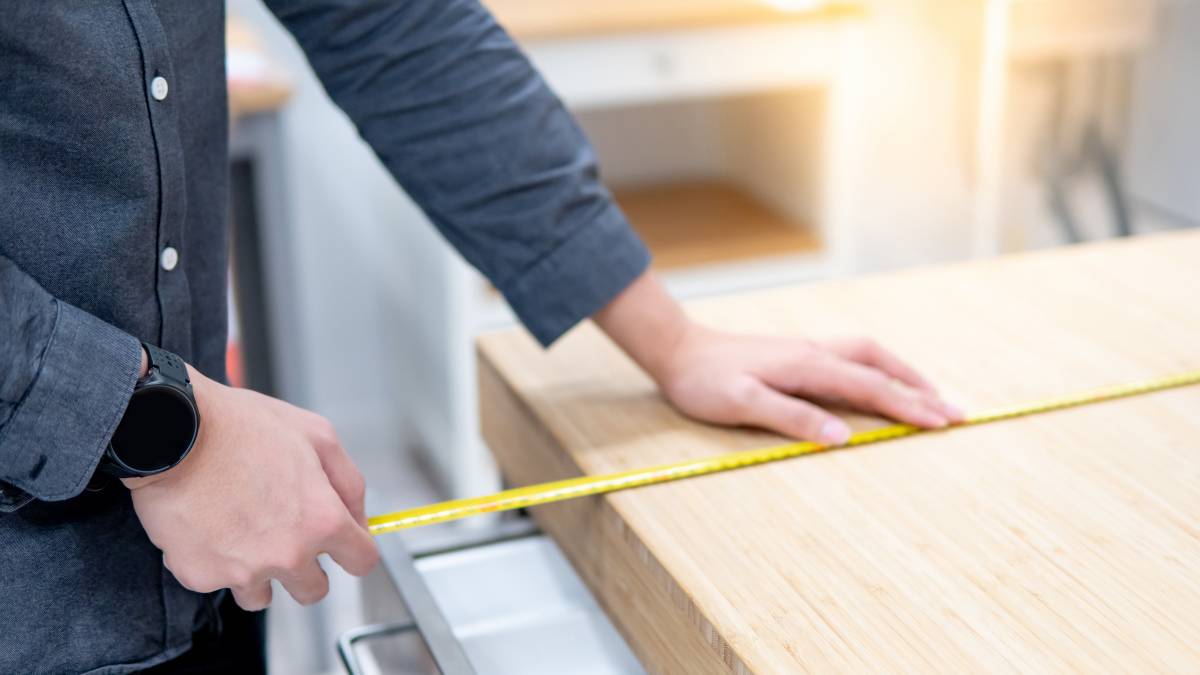
How much does kitchen worktop replacement cost?
Get a free quote nowPost to find a price. It's free and only takes a minute.
Price guide
£100 - £4,000
low
£100
median
£2,000
high
£4,000
Published on
Do you want to upgrade your kitchen to make it more desirable or increase its market value? Would you like to keep up with a home theme? A huge part of the renovation process usually involves changing the kitchen worktop. Now, how much will this cost you? The average replace-kitchen-worktop cost is £2,000 per square metre.
The good news is that kitchen worktop replacement costs are not set in stone. You can further reduce them if you know the factors that impact your budget. This article will discuss all of these, from materials to installation costs. It will also reveal why hiring experts to replace worktops is cost-effective.
Reasons to replace your kitchen worktop
Any home remodelling project demands time, money, and effort. In other words, you do not want to do it unless you get something good in return. So when is the best time to replace kitchen worktops? Consider changing your kitchen worktop when:
It is damaged. With proper care, kitchen worktops can last between 25 and 40 years. However, accidents and premature wear and tear can happen. They might show cracks and chips that make the surface uneven and dangerous. For example, granite worktops can be more difficult to clean, and the kitchen becomes a breeding ground for bacteria.
You want to improve the resale value. Newer-looking kitchen worktops can increase property value. Some studies suggest that natural stones like a granite worktop can bump your property price by 25% more.
You like better functionality. Sometimes your kitchen worktop still looks well, but you should change it to improve its function. For instance, the cost to replace kitchen worktops with laminate is lower than that of quartz kitchen worktops. This is because the former are easier to clean and maintain. However, with engineered stones, the latter can be just as convenient when properly sealed. As a bonus, they make your kitchen look elegant.
Regardless of the reason, replacing worktops is a major homeowner decision. After all, kitchen worktop replacement cost does not come cheap.
Kitchen worktop replacement prices
What is the average cost of replacing kitchen worktops? The tables show the average prices per square metre. The estimates already include the kitchen worktop labour costs and materials.
Kitchen sizes |
Average installation costs (including labour and materials) |
Small kitchens (6.5 square metres) |
£60–£100 |
Medium kitchens (15 square metres) |
£600 |
Large kitchens (22 square metres) |
£2,000 |
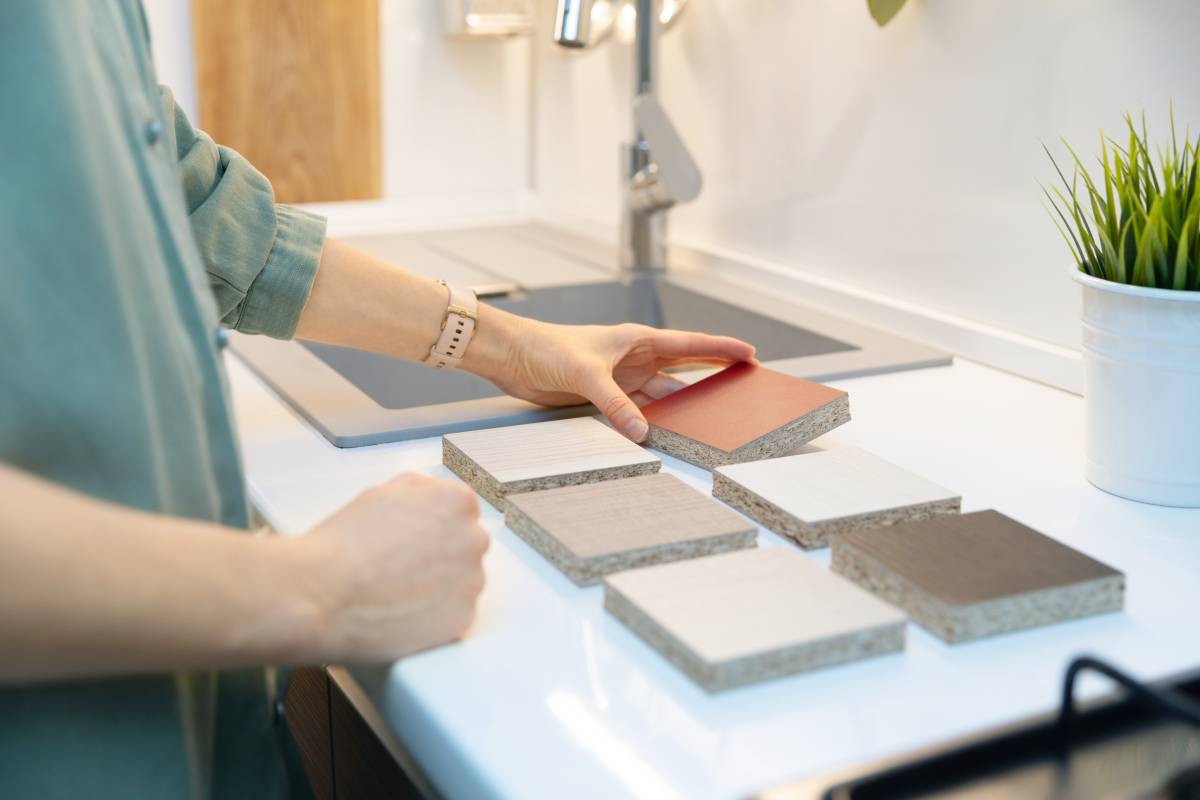
| Type of kitchen worktop | Replacement cost (per square metre) |
|
Laminate worktops |
£100 |
Quartz kitchen worktops |
£1,100 |
|
Granite worktops |
£1,150 |
|
Marble worktops |
£1,200 |
|
Porcelain worktops |
£1,100 |
|
Concrete worktops |
£1,400 |
|
Wooden worktops |
£600 |
|
Stainless steel kitchen worktops |
£400 |
What factors affect the cost of replacing kitchen worktops?
The cost of replacement kitchen worktops can vary widely by location. They will likely be more expensive in big cities like London. The cost of living, for one, means that installation experts would have to charge higher fees.
But it is not the be-all, end-all factor in the cost of changing kitchen worktops. Here are others that can significantly influence your choice between a laminate worktop and a stone worktop, the budget you set aside, and the types of professionals to work with.
1. Kitchen worktop materials
One of the biggest price differentiators is the kitchen worktop material—and you have many choices.
Natural stone worktops
As the name suggests, these are naturally occurring stones mined or harvested from the earth and then processed minimally into slabs. They are well-known for their beauty, elegance, timelessness, and durability. When properly taken care of, they can have a service life of at least 40 years.
Because of these attributes, plus the challenges in the manufacturing process, these kitchen worktops are also some of the most expensive options. Fortunately, your choices for such kitchen worktops are increasing. This gives you more flexibility in terms of style, colour scheme, and budget. Two of these are granite and marble.
Granite is an igneous rock made up of quartz, mica, and feldspar. Its coarse-grained texture, interlocking crystals, and exposure to intense temperatures make it heat-resistant, durable, and low maintenance. However, it is also expensive. The cost of granite worktops could reach around £1,150 per square metre.
Marble is sought after for its luxurious and elegant appearance, which partly explains why the typical cost of marble worktops is over $2,000 per square metre. It is also available in several beautiful patterns and colours, such as white and pink. Like granite, this metamorphic rock composed of calcite or dolomite is strong. But a marble worktop is also more prone to scratching and staining, so it is more high-maintenance.
Engineered stone worktops
Although natural stone worktops are gorgeous and durable, their patterns and shades are sometimes inconsistent. They are also porous and can be prone to scratches and chipping.
You can opt for engineered stone if you want a good balance of aesthetics, function, and hard-wearing. These worktops are a type of composite material. They feature stones, such as crushed granite, and an adhesive, such as resin or cement, to bind them, creating a solid surface. Some of the most popular types are:
Quartz benchtops have over 60% quartz, adhesive, and pigment. They are popular because they are scratch-resistant. Moreover, they are available in different variants. Picking the right tile or slab worktops to go with your home theme is easy.
Engineered marble contains crushed marble and resin. It is an excellent alternative to pure marble because this is less vulnerable to stains and scratches.
Porcelain has china clay or kaolinite, feldspar, and silica. Besides giving your worktop a glossy look, it is chip- and stain-resistant. This engineered stone worktop can even withstand UV light, so it is ideal for outdoor kitchens. Thus, the cost of kitchen worktops with porcelain of almost £1,100 is unsurprising.
Concrete worktops
Your best bet is concrete if you want a more customised appearance and texture to your new worktop. The one-part-cement and three-part-sand material works like a canvas. You can add different colours and produce unique patterns to make your kitchen stand out.
It is also hard-wearing, like natural and engineered stone. Plus, it is cheaper to buy per square metre. However, concrete worktops are highly prone to breaking and chipping. And because they are so porous, they require regular sealing.
Wooden kitchen worktops
Those looking for a more sustainable or eco-friendly worktop can consider a wood one. A staple in traditional themed kitchens (think cottage core, shabby chic, or country cabin), this natural material is famous for its warmth and beauty. It is also available in many varieties, from oak to birch and bamboo.
These kitchen worktops can also be as long-lasting as engineered stone and are slightly cheaper per square metre than natural stone. However, their porosity means they also need regular sealing. When exposed to water over time, they can warp or dent.
Laminate worktops
Laminate kitchen worktops are the cheapest on the list. This also means that the cost of kitchen worktops with this material is affordable. Overall, it makes a great choice for homeowners on a tight budget.
Composed of several layers of plastic, kraft paper, and adhesive, laminate worktops are easier to mass-produce and customise. Thus, you will find a wide variety of laminates, some of which can mimic the appearance of other materials, such as engineered stone.
A laminate worktop is also easy to clean and maintain because it is non-porous. The problem is that you cannot expect a laminate surface to have a similar service life to an engineered stone worktop.
2. Installation
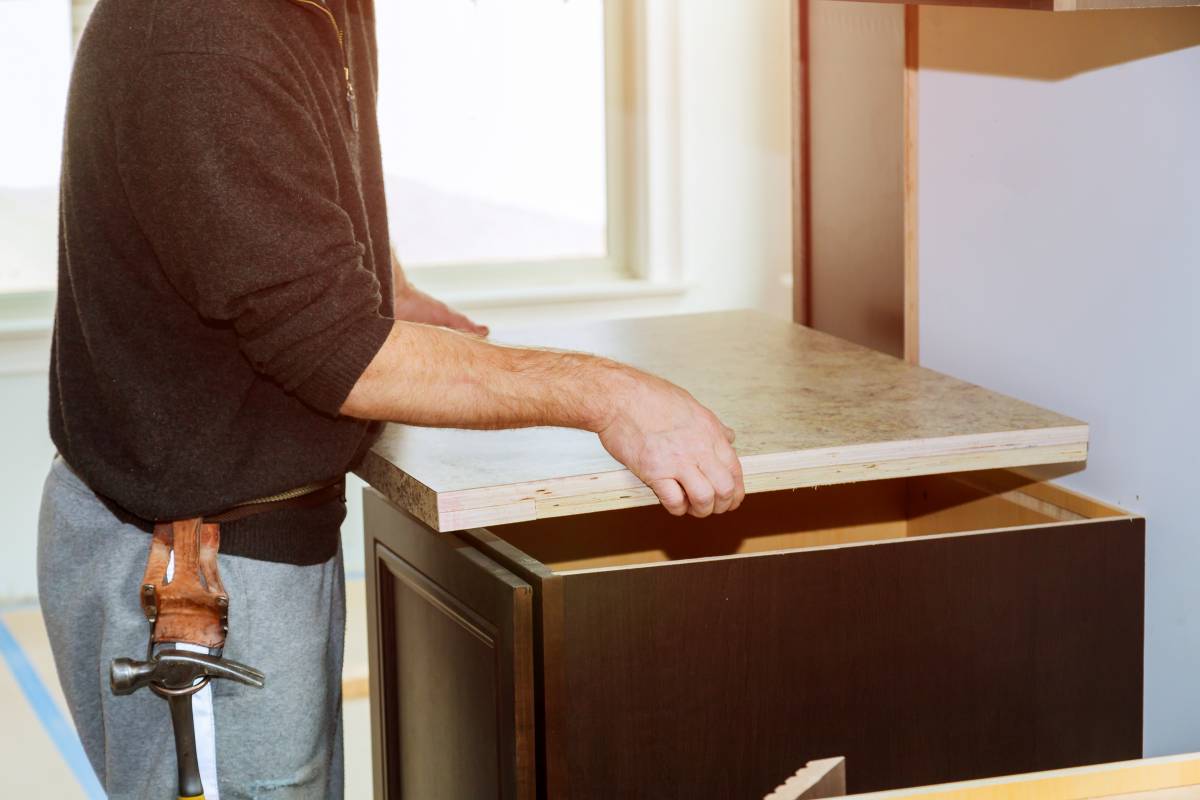
Another factor that can impact the kitchen worktop replacement cost is installation, especially the level of complexity and specialised skills needed. Is the material thick? Does it require more work, such as buffing, cutting, and sealing?
A laminate worktop’s cost can be as low as £100 per square metre because it is also the easiest for any worktop installer to work with. The material is lightweight, requiring fewer tools to cut and shape. Professionals also do not have to apply a sealant.
If you want to install a new granite worktop, much of your new kitchen worktop cost goes towards labour. Like other stone materials, including engineered stone, granite is heavier and more challenging to work with. Sometimes an installer must reinforce the counter to carry the weight of the stone.
The typical stone worktop cost also goes beyond a thousand pounds per square metre because the material is expensive to begin with. It leaves little room for mistakes unless you are ready to spend more. Furthermore, if you want solid-surface worktops for the island benches, an expert should be capable of joining the edges seamlessly.
As a homeowner, the cost can balloon if you want to further customise the kitchen worktops, such as when you want a unique kitchen design or the installer has to perform specific cut-outs or edging.
3. Size of the kitchen worktops needed
The kitchen worktop cost also depends on the kitchen size. A small one usually accounts for 20% of the total square metre of the home. Replacing worktop materials could be around £60 to £100 for this area.
Meanwhile, a medium-sized kitchen, which is roughly 15 square metres, might cost you at least £600. Lastly, the kitchen worktop replacement cost for a large space, such as over 20 square metres, is over £1,500 in most places in the UK.
The sizes can also mean worktop thickness. In principle, thicker worktops often command a higher price than thin ones. For example, marble replacement worktops are at least £300 per square metre, including labour and supply costs. If it is already 25mm, kitchen worktop prices are now £600 and above.
Granite kitchen worktops cost £450, with labour costs, for 20mm thickness.
4. Scale of the project
The overall kitchen worktop cost also depends on the scale of the project. It impacts the timeline, quantity of the materials needed, and specifications you and the contractor must meet.
For instance, if you want to build a commercial kitchen in the home, the best option is a stainless-steel worktop material because of its hygienic finish. However, replacing a kitchen worktop with this one can cost at least £400.
Post a task for kitchen renovation
While the high cost of kitchen worktops might tempt you to DIY, hiring a professional is often more cost-effective in the long run. By avoiding the risks of voiding your home insurance, getting injured, and overspending on equipment, you can be confident that your worktops will be installed correctly and last for years.
Even better, Airtasker makes finding the right installation expert easy and fast:
Create a free account.
Post a task. Indicate the specific skills you are looking for and other project details. These include the timeline, worktop size, materials you want to install, and customisation requests.
Receive proposals from local installation experts or reach out to registered ones.
Replacing a kitchen worktop needs careful planning, creativity, and a sufficient budget. However, you can simplify the process with expert kitchen renovators. With Airtasker, you can connect with many local installers ready to help you.
FAQs on kitchen worktop replacement
The average kitchen worktop replacement cost in the UK is around £2,000. You can DIY the project to save money, but that is not ideal. The most cost-effective in the long term is hiring a kitchen designer or installer who can change the top properly.
The service life of worktops can vary. Wood worktops can last for over 30 years, provided they are regularly maintained and sealed. Ceramic worktops, meanwhile, can remain durable for at least 50 years. It is a non-porous and heat-resistant material, so it can handle hot pans.
A worktop made of engineered stone, such as quartz and porcelain, is remarkably durable. It possesses the hard-wearing features of natural stone. However, because it uses resin, it is not porous.
Find kitchen renovators, fast
Post a task
Related price guides
Related articles
